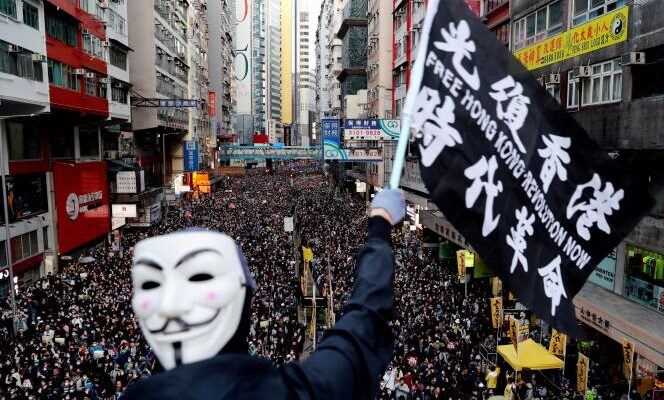In Hong Kong, the authorities announced on Tuesday August 24 that they wanted to toughen up the controversial law on national security. While a committee already has the power, since June, to censor films to be released which, according to it, constitute an attack on national security, a new text must extend this censorship to films already released.
This text would be the last blow to political and artistic freedoms in the semi-autonomous territory, where Beijing violently represses the pro-democracy movement which massively mobilized the population in 2019. “Any film intended to be presented to the public, whether it has already been released or is due to be released, must be approved”, declared the Hong Kong Minister of Commerce, Edward Yau.
The new law will have to be adopted by the Legislative Council (LegCo), the Parliament of Hong Kong, which no longer has any opposition MPs. The maximum penalty for showing censored films will be three years in prison and a fine of 1 million Hong Kong dollars (approximately 110,000 euros).
Censorship of documentaries and works of art
In neighboring mainland China, few films or documentaries from the West are allowed to be released on the country’s screens. Hong Kong was once a stronghold of Asian cinema, producing up to 200 Cantonese-language films a year, which were enthusiastically received by moviegoers in Asia and beyond. The famous actor Bruce Lee, follower of the martial arts, is the figurehead.
The city continues to have film studios, renowned directors and a still vibrant independent scene. But the authorities exercise increasing control over the local cultural scene. In March, the documentary Red Brick Wall, retracing the occupation of PolyU University in November 2019 by pro-democracy students, had been withdrawn from the poster. Likewise, the M + art museum, which is due to open in a few months, has accepted a possible censorship of works that may contravene the law on national security.
